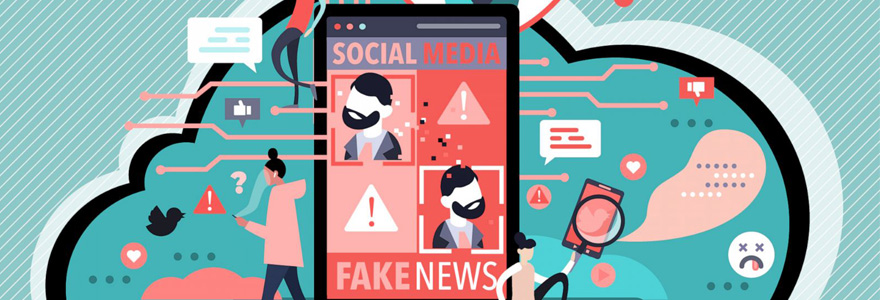
The digital age has ushered in a new era of media and information. With the click of a button, we can access an endless amount of information and resources. However, this new era has also brought with it a new set of challenges, chief among them being the spread of misinformation.
The term “misinformation” refers to false or inaccurate information that is spread intentionally or unintentionally. In the digital age, this can happen at lightning speed through social media and other online platforms.
The spread of misinformation is a problem because it can lead to the formation of false beliefs and can cause people to make poor decisions. It can also have harmful real-world consequences, such as inciting violence or causing people to lose faith in democracy.
combating the spread of misinformation will require a multi-pronged approach. This includes fact-checking, media literacy, and holding the tech companies that enable the spread of misinformation accountable by a tool to certify the news.
The spread of misinformation online
In the digital age, it is easier than ever for misinformation to spread. With social media, anyone can share anything with a large audience with little to no fact-checking. This can lead to the spread of false information, rumors, and conspiracy theories. It is important to be aware of this and to fact-check before believing or sharing anything you see online.
Misinformation can have serious consequences. In the past, false information has been spread about health scares, natural disasters, and political candidates. This can cause people to make bad decisions, such as not getting vaccinated or voting for the wrong candidate. It can also lead to mistrust and division in society.
There are some things you can do to help stop the spread of misinformation. When you see something online that you're not sure is true, take a moment to fact-check it. Use reliable sources, such as news organizations or government websites. You can also help by sharing accurate information with others and calling out misinformation when you see it.
The role of social media
In the digital age, social media plays a big role in our lives. It's a great way to stay connected with friends and family, but it can also be a source of misinformation. It's important to be aware of the dangers of misinformation and how to spot it.
One of the biggest dangers of misinformation is that it can spread quickly and easily. With social media, it's easy for false information to spread quickly and widely. This can be harmful, especially if the misinformation is about something important, like health or safety.
Another danger of misinformation is that it can be difficult to spot. Some misinformation is easy to spot, like fake news stories. But other types of misinformation, like false information that's been shared by people you trust, can be more difficult to identify.
The best way to protect yourself from misinformation is to be thoughtful about the information you share and consume. Be critical of the sources you're using, and make sure to check facts before you share. When in doubt, err on the side of caution. And remember, you can always ask a trusted friend or family member for their opinion.
The impact of digital technology on democracy
In the 21st century, the internet and digital media have transformed how information is disseminated and consumed. This has had a profound impact on democracy, as the public now has unprecedented access to information and can play a more active role in the political process. However, this also means that there is a greater risk of misinformation and disinformation being spread online.
It is therefore important to be able to critically evaluate the information that is being presented to us. We need to be able to question what we see and read, and to look for reliable sources of information. We also need to be aware of the ways in which we can be manipulated online, and to think critically about the messages that we are being exposed to.
The internet and digital media have the potential to empower the public and to help democracy to thrive. However, we need to be aware of the pitfalls and to be vigilant in our quest for accurate and reliable information.
How to fight misinformation online
In the digital age, we are constantly bombarded with information from social media, online news sources, and more. It can be difficult to determine what is true and what is misinformation. Misinformation is false or inaccurate information that is spread deliberately to deceive people. It can be spread by individuals, groups, or even governments.
There are a few things you can do to help fight misinformation. First, take the time to verify the information you see online. Check multiple sources to see if they are reporting the same thing. Be skeptical of information that confirms your existing beliefs. Look for evidence to support the claims being made.
Second, share accurate information with others. Help to correct misinformation when you see it. When you share information, include a link to the source so others can check it for themselves.
Third, support fact-checking organizations. These organizations work to fact-check information and expose misinformation. By supporting them, you can help them continue their important work.
The digital age can be overwhelming, but by being thoughtful about the information you consume and sharing accurate information with others, you can help fight misinformation.
The article "Understanding Media and Misinformation in the Digital Age" discusses the role of media in our society and how it can be used to spread misinformation. It is important to be critical of the sources of information that we consume and to question the motives of those who create and share it. Media literacy is a vital skill in the digital age.